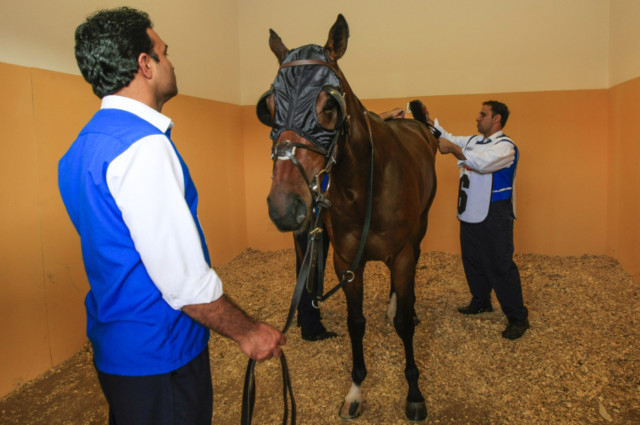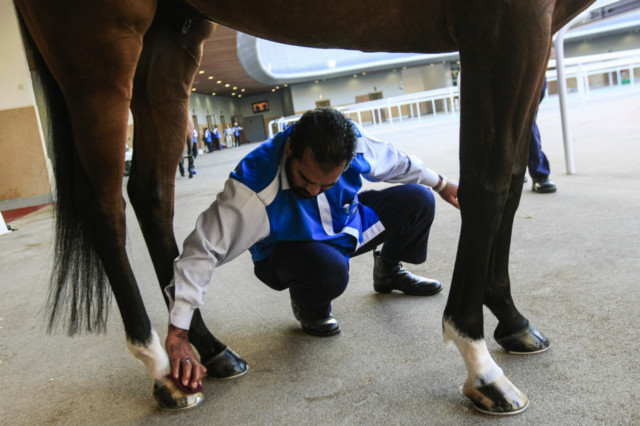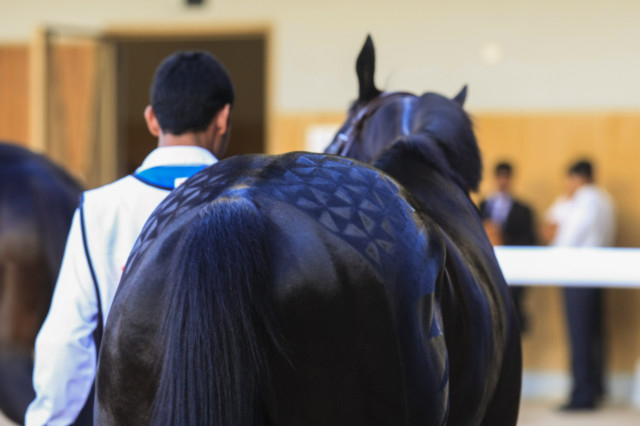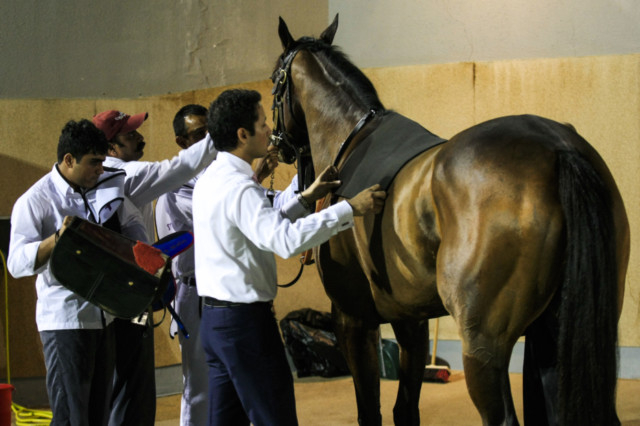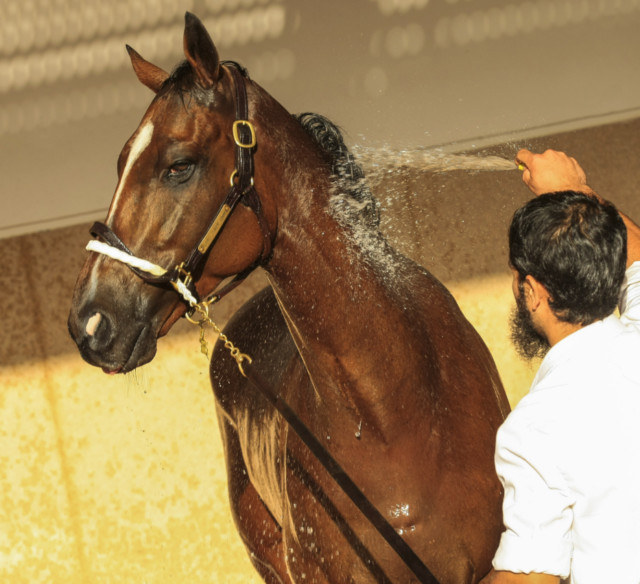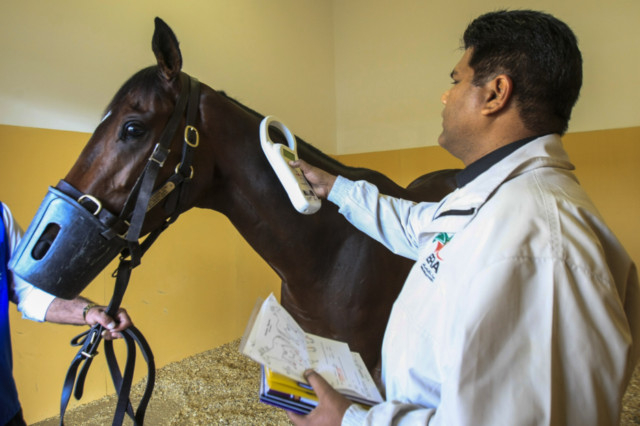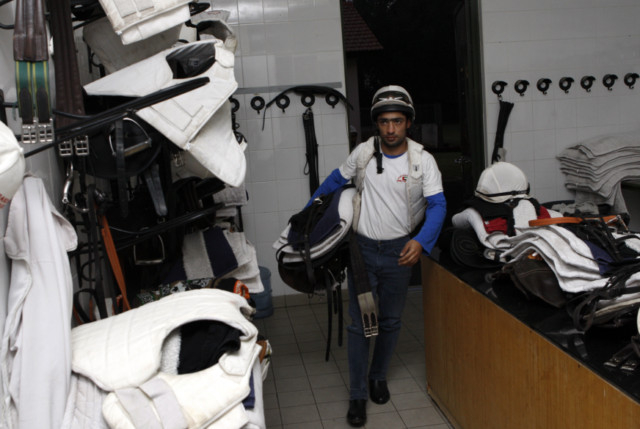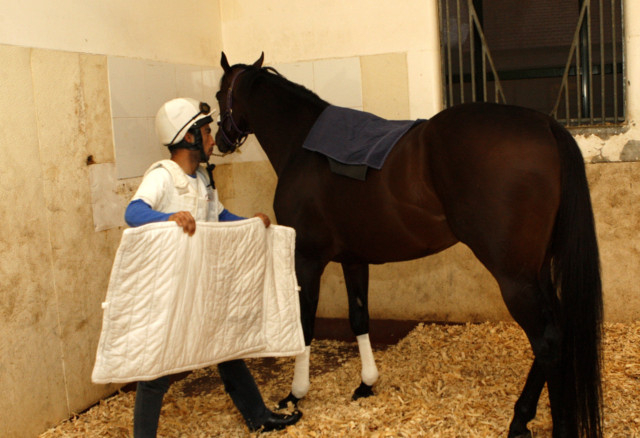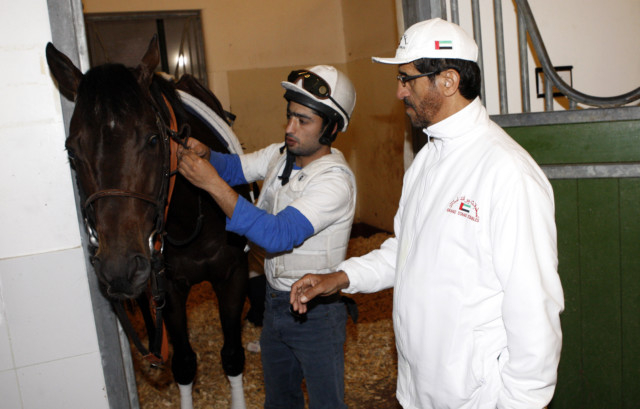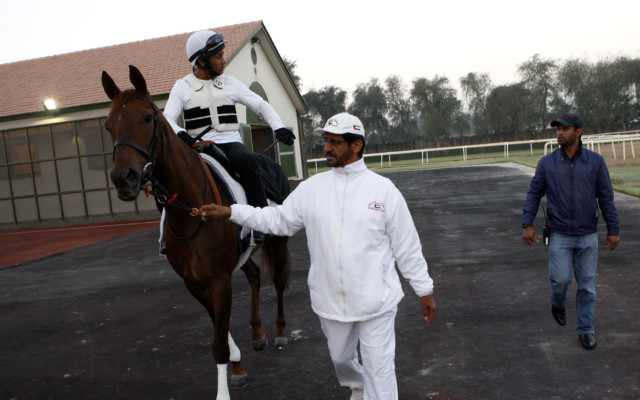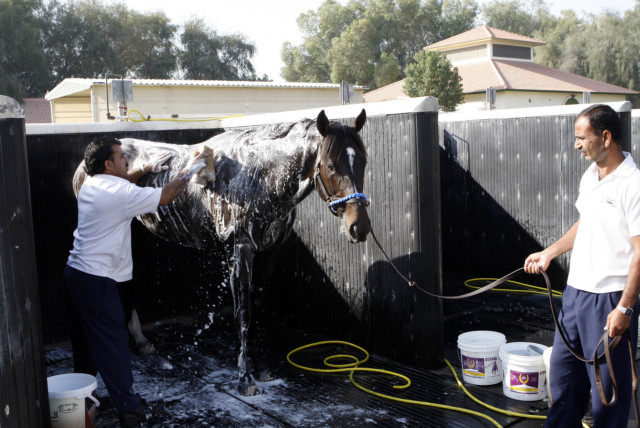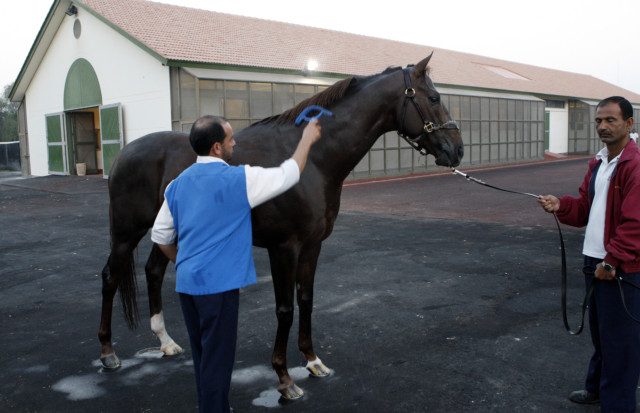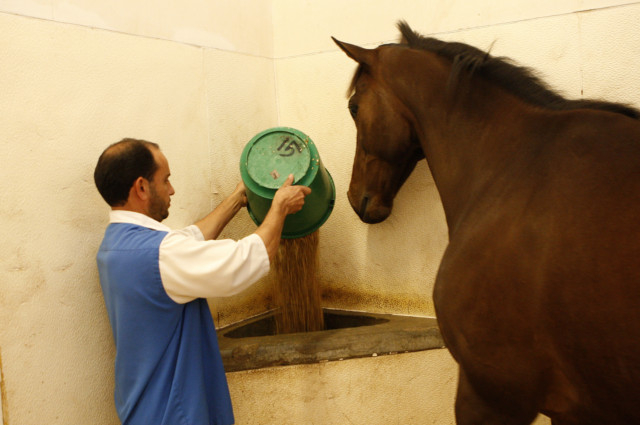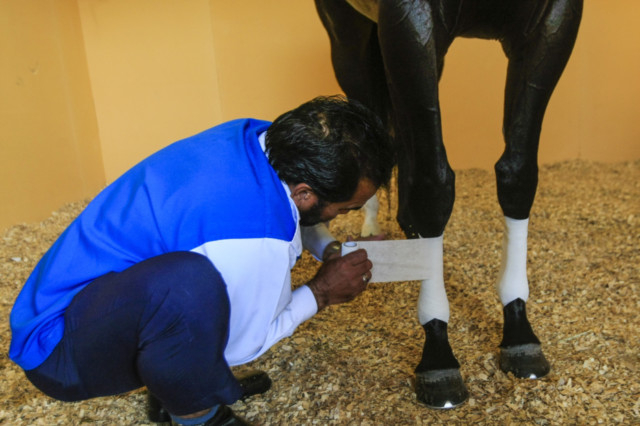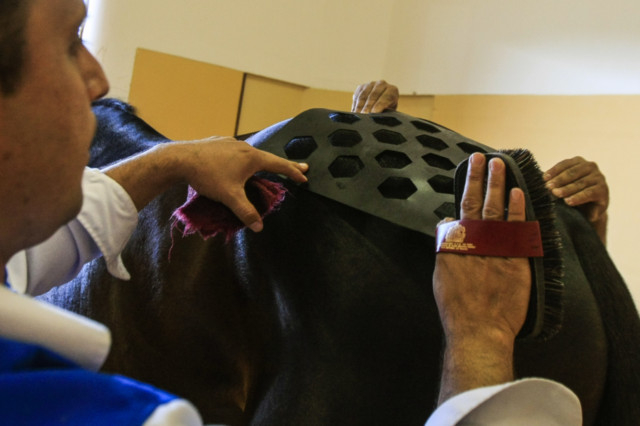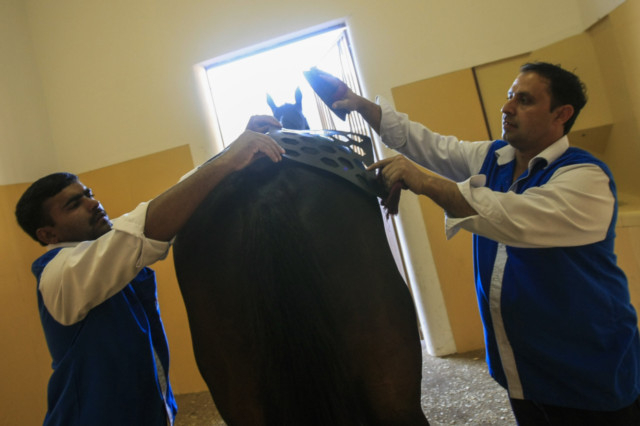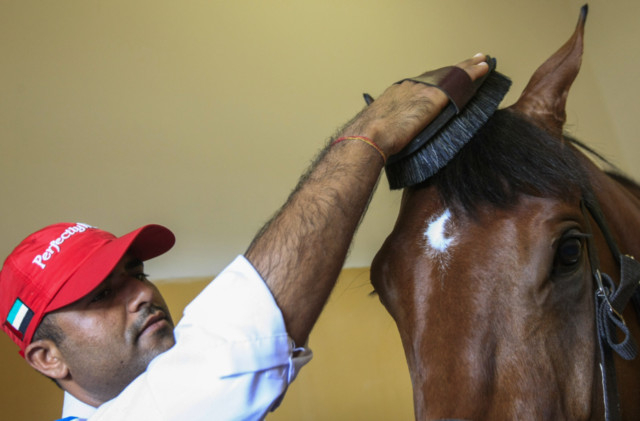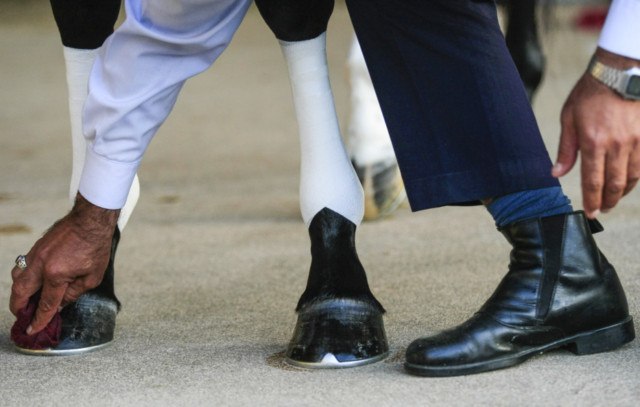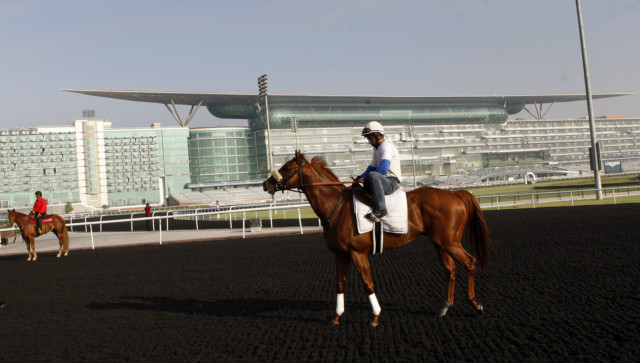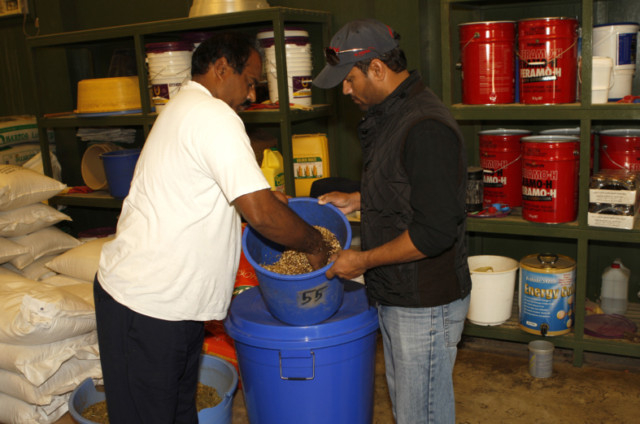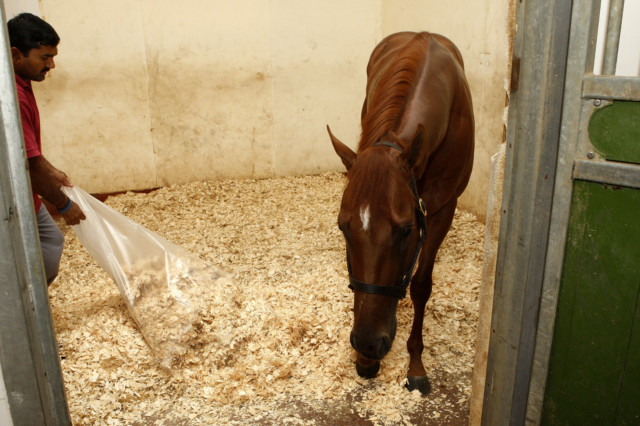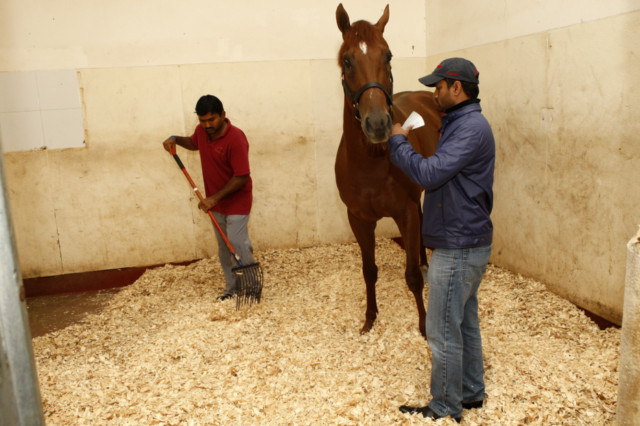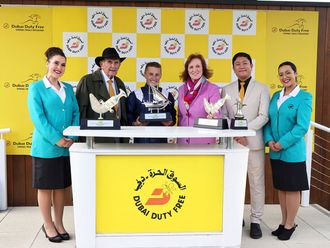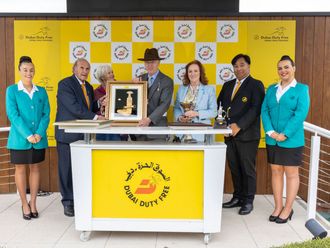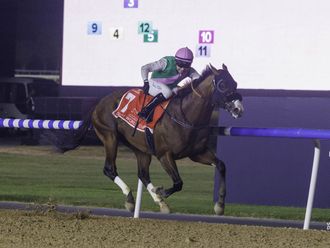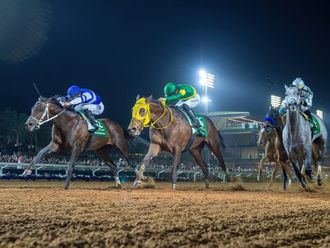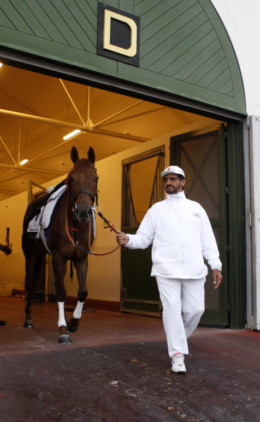
Dubai: If you think being a racehorse trainer is all glamour and prestige, you might want to think again. The reality is that the demands of the job involve packed schedules, drastic lifestyle sacrifices and enormous levels of pressure.
It certainly looks glamorous and prestigious, but what you don’t see are the long hours spent training, the gruelling shifts and the pressure.
But, at the invitation of Ali Rashid Al Raihe, the three-time UAE champion trainer, and his long-serving assistant Jilani Siddiqui, Gulf News spent a day at the Grandstand Stables and was given a fascinating insight into the typical day of a racehorse.
What strikes you most is that everything works to a routine, driven with clockwork precision by a well-oiled team.
At the outset, Al Raihe points out that you should never make the mistake of treating a racehorse like a pet. He has one purpose in life — to win races.
In order to give him every chance of bringing home the goods, he has to be well-looked-after, kept happy and, above all, in peak fitness. A lack of fitness will result in below-par performances and can lead to injury.
Early morning training
So what’s it like in a typical day in the life of a racehorse? For starters, it begins in the early hours of the morning, even before the first cock has crowed and before the sun begins to rise.
At the Grandstand Stables, race day commences between 4.30 and 5am, though the staff have to wake up even earlier to begin preparations, before Al Raihe and Siddiqui arrive.
After a quick check-up, the horse is given his morning meal before he is exercised for about an hour. With his groom he is either hand-walked or placed on a hot walker for a short period of time. After this exercise he could be given anything from a light gallop on the track to a fast workout.
Irrespective of what they have done, all horses are hosed down, groomed and then taken back to their stalls for the rest of the morning.
All this is done before 9am to keep them away from the heat, which could affect the condition of a horse. While horses need to be trained, they also need adequate rest. If you overwork a horse, chances are that you will make him unhappy and that could affect the way he performs. Around midday, the horse is given a second meal before he is taken out of his stalls in the afternoon, where the morning routine is likely to be repeated.
Ali Rashid reiterates that getting a horse used to a routine is intrinsic to a successful training programme.
“I love talking about horses, and can just go on and on. But I guess both of us still have a lot of work to do. So let’s go and try to win some races.”


